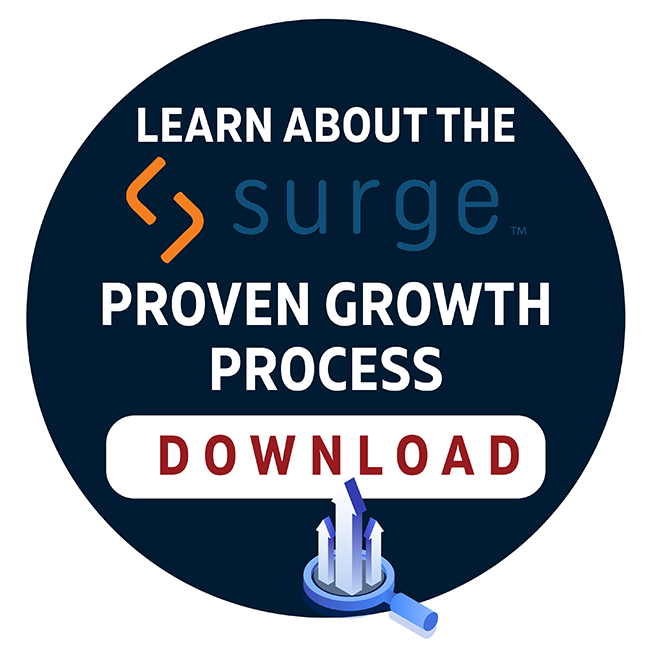Level up your business by strengthening your strategies through partnership.
As a financial advisor, you play an essential role in helping clients reach their financial goals, but you may often face challenges when it comes to tax planning.
With tax laws and regulations constantly changing, it can be difficult for financial advisors to stay up-to-date and provide their clients with the most robust tax strategies. This is why partnering with a tax planning CPA can be a valuable asset for financial advisors.
Tax planning proves to be a very important aspect of wealth management for clients. Did you know that:
- A whopping 80% of investors think that their financial advisors should focus on minimizing their taxes.
- Along with that, 90% of survey respondents said they believe that taxes corrode the growth of their investment accounts over time.
With these statistics in mind, here are some probing questions financial advisors should consider when thinking about partnering with a tax planning CPA:
- How can you ensure that your clients receive the most up-to-date tax planning advice?
- How can you ensure that your client’s investments are structured in the most tax-efficient way possible?
- How can you help your clients minimize their tax liability and maximize their after-tax returns?
By partnering with a tax planning CPA, you can access the expertise and resources needed to address these important questions and provide clients with the best possible tax planning advice.
Related: 5 Ways to Build a Customer Experience Strategy
Centers of Influence: Expand Your Circle, Expand Your Clientele
Partnering with a tax planning CPA can be a valuable asset for financial advisors looking to expand their reach and acquire new clients. By approaching centers of influence (COIs) together, financial advisors and CPAs can offer a comprehensive solution for clients, positioning themselves as trusted advisors with a deep understanding of financial and tax planning.
Here are some tips for approaching COIs as a financial advisor and CPA partnership:
- Identify target COIs: Start by making a list of individuals or organizations that your ideal clients would turn to for advice, such as estate planning attorneys, tax accountants, insurance agents, or other trusted professionals.
- Build relationships: Once you’ve identified your target COIs, it’s time to start crafting relationships with them. This can be done through face-to-face meetings, phone calls, or email correspondence. Show genuine interest in their work and seek to understand their clients’ needs.
- Offer value: When approaching COIs, it’s essential to offer them value. This could include providing educational materials, hosting seminars, or offering to co-host events. By demonstrating your expertise and value, you’ll position yourself as a trusted resource for their clients.
- Collaborate: COIs can be powerful allies when acquiring new clients. Consider collaborating with them on projects or co-hosting events to increase your exposure and build relationships.
- Showcase your partnership: When approaching COIs, be sure to showcase the value of your collaboration as a financial advisor and CPA. Highlight the benefits of a comprehensive approach to financial and tax planning and the peace of mind it offers clients.
- Follow up: After your initial meeting, be sure to follow up with the COI and continue building the relationship. This could involve sending them articles of interest, inviting them to events, or simply keeping in touch.
By following these tips, financial advisors and CPAs can build strong relationships with COIs and expand their reach as a partnership. Remember, building relationships takes time, so be patient and persistent.
With a well-thought-out approach, centers of influence can be a valuable source of referrals for your practice.
The Power of Beneficial Mutuality
Partnering with a tax planning CPA can bring numerous benefits to provide comprehensive solutions to your clients. Here are some of the key benefits of such a partnership:
- Improved client outcomes: A financial advisor and tax planning CPA partnership can offer a more comprehensive approach to your financial planning. By combining expertise, the partnership can provide clients with a better understanding of their financial and tax situation and help them make informed decisions.
- Increased credibility: Financial advisors who partner with tax planning CPAs can benefit from the added credibility that comes with offering a more comprehensive solution. This can help you stand out from the competition and attract new clients.
- Access to specialized knowledge: CPAs have specialized knowledge in tax planning and can provide valuable insights and recommendations to financial advisors. As the advisor, this helps you offer more comprehensive solutions for clients and improve the quality of your advice.
- Enhanced client service: A financial advisor and tax planning CPA partnership can provide clients with a higher level of service by offering a one-stop shop for their financial and tax needs. This can help to build strong relationships with clients and improve client retention.
- Increased referral opportunities: Partnering with tax planning CPAs can benefit from the referral opportunities that come with the alliance. CPAs may be more likely to refer clients who can offer a comprehensive solution and vice versa.
- Improved efficiency: By partnering with a tax planning CPA, financial advisors can save time and effort by accessing specialized tax knowledge and resources. This can help to provide better client service and streamline workflows.
Partnering with a tax planning CPA can bring numerous benefits to financial advisors looking to provide comprehensive solutions to their clients. From improved client outcomes to increased referral opportunities, a CPA partnership can help you stand out from the competition while growing your practice.
Things to Consider Before Forming Your Duo
There are a few key factors for a financial advisor to consider before partnering with a tax planning CPA to ensure the partnership is a success:
- Determine your goals: Before partnering with a tax planning CPA, you must determine what you hope to achieve through the partnership. This can include increasing your credibility, improving client outcomes, or expanding your reach. By clearly defining your goals, you can ensure that the partnership aligns with your overall business strategy.
- Assess compatibility: It’s important to find a tax planning CPA who’s a good fit for your business. Look for someone who shares your values and has a similar approach to serving clients. Compatibility will be key to the success of the partnership.
- Review their experience and qualifications: When considering a potential partner, it’s important to review their experience and qualifications. Ensure that the tax planning CPA has the experience, knowledge, and expertise to provide valuable insights and recommendations to your clients.
- Understand their fee structure: Before partnering with a tax planning CPA, you must understand their fee structure and how they’re compensated. This will help to ensure that the partnership is financially feasible and sustainable.
- Define roles and responsibilities: Clearly defining the roles and responsibilities of each person is crucial to the partnership’s success. This can help to avoid misunderstandings and ensure that each partner contributes effectively to the partnership.
- Establish clear communication: Clear communication and setting expectations for the partnership can help ensure its success. This may involve setting regular check-ins, defining communication channels, and establishing transparent processes for decision-making.
By considering these factors and taking the necessary steps before partnering with a tax planning CPA, you can ensure that the partnership flourishes and helps to grow business. Financial advisors and tax planning CPAs can provide comprehensive solutions to their clients and achieve their shared goals by working together.
It’s A Win-Win
A financial advisor and tax planning CPA partnership can bring numerous benefits to those seeking comprehensive solutions for their clients. From improved client outcomes to increased credibility, a financial advisor and tax planning CPA partnership can help financial advisors differentiate themselves from their competition and grow their business.
Partnering with a tax planning CPA can be a win-win situation for both parties. Financial advisors can benefit from the added credibility and referral opportunities that come with offering a comprehensive solution. At the same time, tax planning CPAs can benefit from expanding their reach and serving a broader range of clients – how mutually beneficial!
If you’re considering partnering with a tax planning CPA, take the time to assess compatibility, review the CPA’s qualifications and experience, understand their fee structure, define roles and responsibilities, and establish clear communication. By doing so, you can ensure that the partnership is mutually beneficial.
If you’re looking for support in creating an actionable plan to scale your business, find the perfect partnerships, and strengthen your strategies to meet your client’s needs, partner with Surge Business Consulting today.
For Financial Professional Use Only



